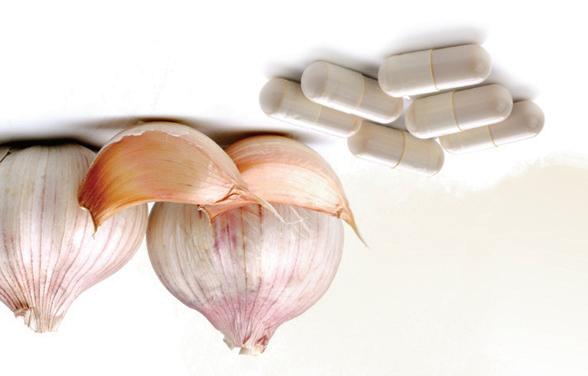
4 minute read
CLEAN EATING
the health benefi ts of going organic Removing GMOs and pesticides from your diet can seriously reduce your body’s toxic burden
First, understand the diff erence between organic farming and conventional. Certifi ed organic farmers may not use synthetic chemical pesticides, artifi cial fertilizers, genetically modifi ed organisms (GMOs), and unnecessary hormones or antibiotics. Instead of these toxic substances, they use practices that restore, maintain, and enhance soil and ecosystem health.
Advertisement
This type of farming translates to more nutritious foods. Organic foods have 18–69 percent higher concentrations of healthprotective antioxidants—along with lower levels of toxic heavy metals and pesticides— than conventionally grown foods, according to a 2014 meta-analysis examining 343 peer-reviewed publications in the British Journal of Nutrition. Organic farmers don’t use synthetic chemical pesticides, while conventional farmers apply, on average, 2–12 synthetic pesticides to their crops. According to a study published earlier this year in the peer-reviewed journal Environmental Research , families who switched to an organic diet rapidly and dramatically reduced their exposure to four classes of pesticides—by an average of 60 percent after just six days of eating organic.
Limiting that exposure is important, especially for kids. Residues of some pesticides can trigger subtle changes in a child’s development, and have been linked to a wide range of health problems including attention defi cit hyperactivity disorder (ADHD), autism, reduced fertility, obesity, and certain forms of cancer.
Lower Risk of Cancer A study reported in October 2018 in JAMA Internal Medicine found that eating organic can signifi cantly cut your risk of developing cancer. The study, which followed close to 70,000 adults for fi ve
April 2020 and allergies, and eventually experienced an anaphylactic reaction. When she adopted an all-organic diet, she recovered her health so much that she no longer feels she has a disability, and her children overcame their health problems, too.
This type of evidence is anecdotal. But Perlmutter explains that multiple anecdotes make up data, meaning that each
individual anecdote accumulates to a body of information that we can call data. Plus, those anecdotes matter to those individuals, dramatically improving their lives in signifi cant health-enhancing ways. Taming Toxins It makes sense why eating organic foods would upgrade health to overcome disease, Perlmutter says. The herbicide glyphosate, for example, is a metal chelator, antibiotic (that can kill good bacteria), endocrine or hormone disruptor, and probable human carcinogen. For all of these reasons, it sets up what he calls “a perfect storm” of ways it deteriorates body health.
By eating organic foods that aren’t sprayed with glyphosate and other pesticides, people remove the ingredients that cause the most toxic burden for the body’s best function, and doing that helps restore the body’s innate ability to heal itself, no matter what health condition each of us has.
In her practice in Northern California, veteran pediatrician Michelle Perro, MD, co-author of What’s Making Our Children Sick? has seen similar clinical data. Perro says switching to an all organic diet doesn’t just help dramatically improve the health of the children who are most sick. It off ers health benefi ts for all members of the family, some quite dramatically. Did You Know? Pesticide residues have been linked to several health issues in kids, so limiting their exposure by eating organic is important. years, found a 25 percent decrease in the risk of all types of cancer among regular consumers of organic foods, compared to people who eat organic less often. The association was particularly marked in breast cancer among postmenopausal women (34 percent decreased risk) and in lymphoma (a staggering 76 percent decreased risk).
“Things like cancer don’t just happen. They happen for a reason,” says Grain Brain author David Perlmutter, MD. And now we’re seeing connections between the mechanisms of cancer and mechanisms by which glyphosate changes human physiology to increase the risk of cancer, Perlmutter says. Growing Evidence In addition to studies that show benefi ts, success stories of people explaining how they recovered from numerous ailments after switching to an organic diet are growing. A documentary called Secret Ingredients shares personal accounts of more than a dozen people who turned around serious health conditions—including breast cancer, infertility, and life-threatening food allergies—after adopting an organic diet that avoided GMOs and food sprayed with pesticides. For example, Kathleen DiChiara and her family were struggling with 21 chronic diseases. Kathleen experienced a severe health crisis— sudden onset neuropathy in her legs, followed by surgery, followed by paralysis and chronic pain syndrome. Her children suff ered from chronic conditions of their own. Her oldest son had autistic spectrum disorder. Her middle son had asthma, chronic bronchitis, bloating, and mood swings. Her youngest son had rashes




























